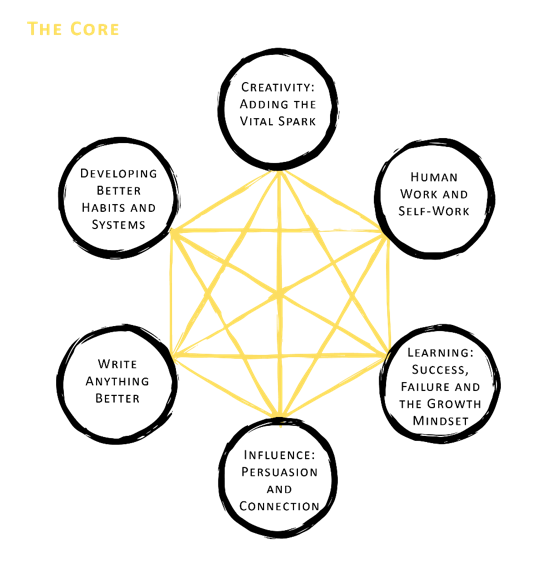Why you’re least likely to prioritize what you most need for work success
It’s great to connect with you again! We’ve been catching up with our work after a summer that was not as quiet as we expected(!). When work challenges come, as they inevitably do, we believe our skills are vital to our success. But which skills do we most need to develop to meet our academic work challenges?
A survey of over 1100 workers recently identified that 40% of work time was spent working with other people towards shared goals, but 70% of respondents received no formal education in collaboration skills. Extrapolated to academia—we call this the ‘paradox of needs’—it’s when you’re least likely to develop the very skills you most need for success in your academic work.
While we firmly believe academic workplaces need to be more inclusive, fair, and offer stable and well-paid employment, we also believe the paradox of needs can additionally explain why many academics feel dissatisfied, burned out, or disenfranchised, and also more subtly why so many engage in bullying, harassment, or incivility. It’s not that academic workplaces are replete with ‘bad people’ (them) and ‘good people’ (me, you, and us), but that most academic workers haven’t been equipped with the skills they most need to maximize the potential of themselves or their work.
For example, in our Core approach to academic work, we place ‘working well with others’ (or “people work”) as being central to success in academic work. On teaching teams or research teams, committees to panels, colleagues to collaborators: the ability to work well with other people is pivotal to so much academic work. Yet, like the survey, the vast majority of our efforts, discourse (in books, social media, conferences…), and institutional support, wholly ignore this vital human element.
In two of our recent University Affairs columns on academic work, we focused on the ‘paradox of needs’ in relation to two of academic work’s most common yet troublesome learnable skills :
Both address aspects of academic work for which there is almost no formal training, despite being key to our daily work, and help us to develop skills. While we may learn on-the-job or from our mistakes, how much great academic work goes ‘not done’, because of the unintended consequences of our institutionalized ignorance to some of the most needed skills? Too much.
Why does the ‘paradox of needs’ persist in academic work?
We still hear that success in academic work requires less personal work and growth than it often does; whether our methodological prowess, substantive knowledge, or sheer brilliance. Vanity indeed? Certainly, focusing away from ourselves is very safe from the personal vulnerability and stark reflection that learning often involves.
Sometimes skills are simply written out. Even if you aren’t good as you need to be, for example at being organized, listening, working well in teams, or being creative, these are all skills you can develop via learning. However, we’ve seen prominent research papers and presentations confuse the tasks of academic work (usually expressed via a massively detailed diagram to show the full diversity of work tasks) with the learnable skills required to do these tasks well. Yet, tasks and skills are as different as destinations and journeys. One may help the other, but they are fundamentally different.

Take time this month to reflect on the ‘paradox of needs’—and identify using the Core what deeper learnable skills you most need for success in your current academic work tasks and projects.
Develop a plan to spend at least one hour per week this month learning and improving your learnable skills in key areas.
